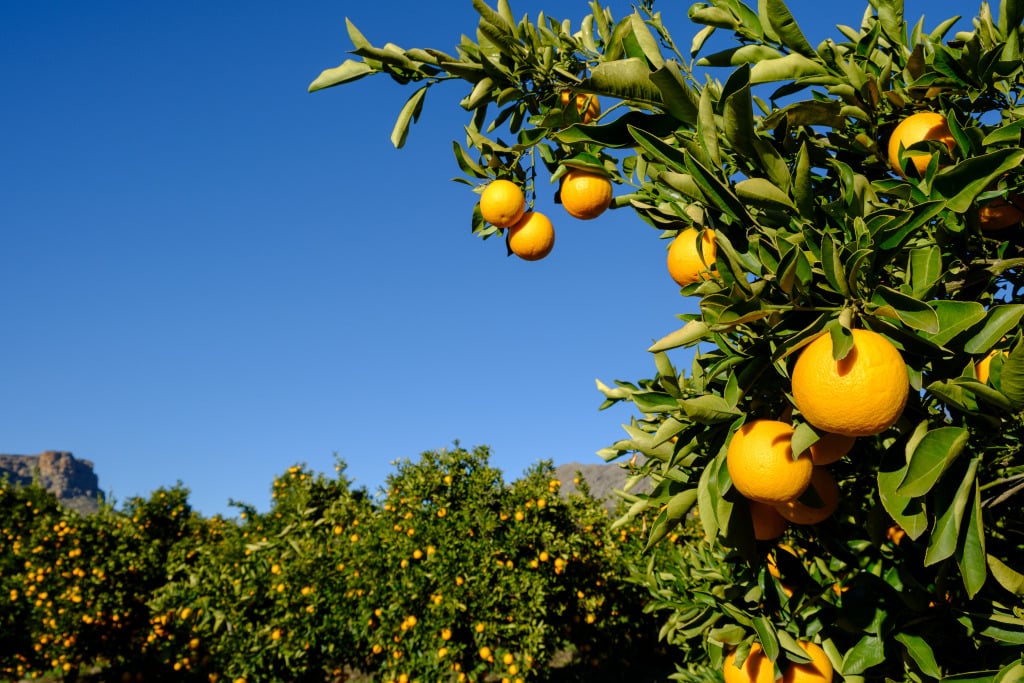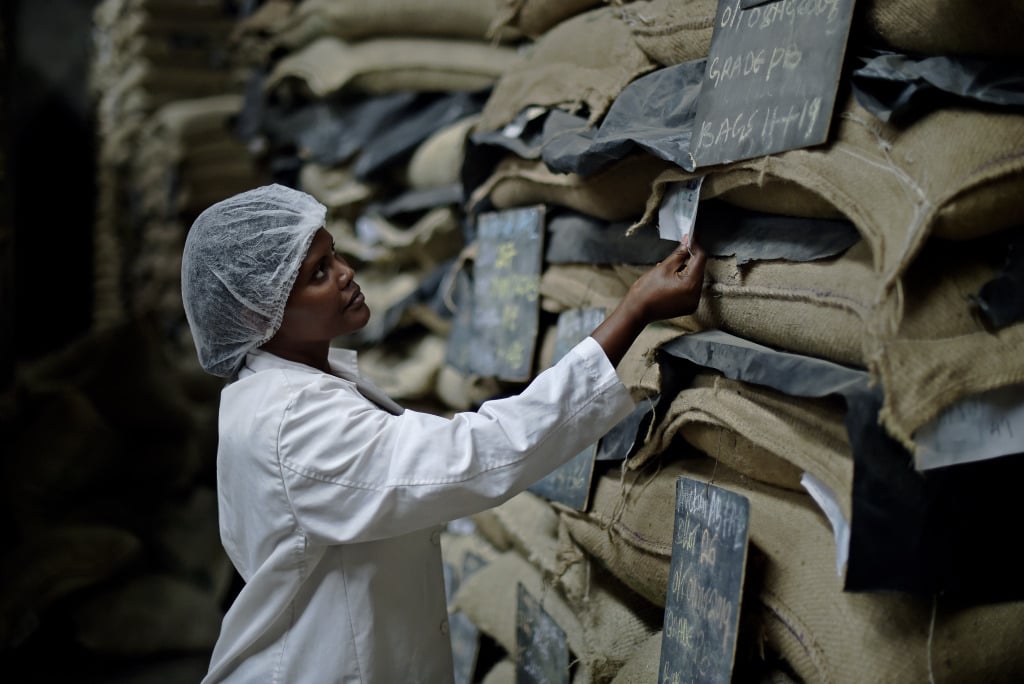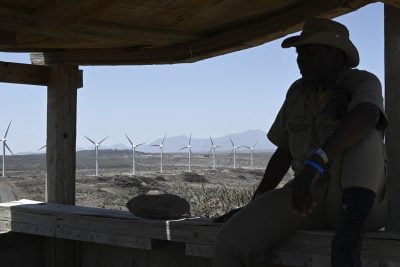As with every other industry, Covid-19 has had a huge impact on the African agribusiness sector. The pandemic and associated lockdowns have greatly disrupted supply chains, while the economic downturn saw short-term falls in investment and trade volumes.
Moreover, the crisis is far from over, with a new wave of infections affecting Southern Africa in particular at time of writing. Yet for better or worse, the pandemic could also speed up many ongoing processes, such as the adoption of new crop strains and land use diversification, particularly into renewables.
There is no doubt that the pandemic has had a big impact on food production, and a succession of surveys and reports back up this point. Research by the Integrated Food Security Phase Classification initiative shows that the crisis has reduced levels of food security and reduced the income of those farmers who sell their crops, such as cassava, yams and tomatoes, to African towns and cities.
Moreover, in Olam’s March survey of 3,432 farmers in 19 countries, over half of respondents reported that the pandemic had affected their income, production, food security and nutrition.
Let’s unblock the bottlenecks holding back potential, says FAO
Many of the problems faced by African agriculture date back to before Covid. A report on food and agriculture in sub-Saharan Africa released in May by the Food and Agriculture Organisation (FAO) based on analysis of data going back 15 years finds that the sector’s full potential is not being reached due to a chronic failure to implement political commitments.
Of the 13 countries surveyed, only Malawi has consistently met the commitments made by African governments in 2003 and 2014 to devote 10% of their national budgets to food and agriculture, while Mali has sometimes met it.
According to the report, the remaining 11 countries – Benin, Ghana, Burkina Faso, Kenya, Burundi, Ethiopia, Mozambique, Rwanda, Senegal, Uganda and Tanzania – have never met the pledge, and in some cases spending is as low as 3% of the national budget. In addition, insufficient administrative capacity means that 20% of the funding that has been made available is never disbursed.
This could create a feeling that such investment is not needed, yet nothing could be further from the truth. Most of the money spent by governments is used to subsidise tools, fertilisers, seeds and other inputs, a strategy that the FAO suggests generates diminishing returns over time.
“Let’s unblock the bottlenecks that are holding back potential by increasing coordination and upskilling human capacity in African nations,” commented FAO director-general Qu Dongyu. “And let’s unlock funds and streamline public financial systems, so that the scarce resources we have do not go unspent.”
Changing government responses are also likely to have an effect on food supplies. The government of Uganda, for instance, provided people with emergency food supplies during the country’s first lockdown but during the second it has opted to provide payments to enable people to buy the basic foodstuffs they need, trusting that the market will be able to provide that food.
A poor security situation is always a challenge to food production and processing, so it is no surprise that the recent wave of looting and hijacking in South Africa, which was triggered by the arrest of its former president, Jacob Zuma, has affected food production and supply.
All sugar mills in KwaZulu-Natal were closed after sugar farms were attacked, destroying at least 300,000 tonnes of cane in the process. Attacks on trucks and road blockades have also affected the transportation of crops and food products around the country, resulting in many deliveries being spoiled.
Record citrus exports in South Africa
It is easy to be pessimistic about the impact of Covid-19 on African agribusiness yet some farmers and other players in the food supply chain have enjoyed great success over the past year.
Although prices vary from commodity to commodity, the sector as a whole is benefiting from high prices as a result of rising global demand and lower production in other parts of the world, including Latin America, large parts of which have experienced low rainfall over many months.
By contrast, many parts of Africa are currently enjoying high production volumes. According to the country’s Citrus Growers Association, South Africa registered its highest ever citrus exports last year at 146m cartons, building on rising volumes over the past 10 years, with recent investment expected to result in higher production over the next three years.
South Africa is the world’s second biggest citrus exporter, after Spain. Indeed, the sector’s success could explain capacity problems at the port of Cape Town, one of the country’s two main citrus export points.
Port operator Transnet has had to rein in its investment plans because of the pandemic but investment levels had been criticised even before the crisis began.
In June, the Western Cape provincial minister of agriculture, Ivan Meyer, called on Transnet to improve port efficiency, arguing: “The shortage of equipment and obsolete equipment highlights the Port Authority’s inability to manage the Cape Town terminal efficiently. It undermines the critical role that the port should play in supporting exports and economic growth.”
However, another Transnet operation, Transnet Freight Rail, has demonstrated some flexibility in coping with the expected rise in grain exports this year.
The utility moved 235,826 tonnes of grain by rail to the Port of Durban from the main production area around Bethlehem in the Free State last year but has announced that it will put sufficient capacity in place to handle 550,000 tonnes this year to cope with an anticipated bumper harvest. This will require up to 20 grain trains a week to run from Bethlehem to Durban, taking 16,100 truckloads off the roads in the process.

Uganda’s coffee exports hit 30-year peak
Ugandan coffee growers are another success story. The country exported 6.08m 60kg coffee bags in financial year 2020-21, the highest figure for three decades and up from 5.1m bags in the previous year. Annual coffee production had averaged 3m bags over many years but has steadily increased over the past three years, with a record $559m in export revenue generated this year.
Other African markets are starting to take a bigger share of the country’s coffee, with Sudan accounting for 7.81% of exports in June and Algeria 6.28%, although European markets continued to dominate, taking 61% by volume. Under the National Coffee Strategy, the sector has set itself the target of producing 12m bags a year by 2040.
Higher yielding, more disease resistant strains are also being adopted and rising yields are the result of greater control of coffee wilt disease, although robusta harvests continue to be affected. Standards of coffee cherries and handling procedures have also been tightened up.
The acreage under cultivation has increased as the price paid to farmers has increased, with existing farms expanding and coffee cultivation being launched in new districts, particularly in the north of the country. Finally, production is rising because farmers have begun planting more trees per acre than in the past, following the lead set by Brazil.

A worker checks sacks of coffee beans. Uganda’s coffee exports were the highest for decades in 2020-21. (Photo: CARL DE SOUZA / AFP)
Renewable revenues
Farmers around the world are starting to diversify their sources of income, with many turning to tourism. However, the renewable energy sector also provides a range of different sources of revenue.
Wind and solar farms can be located on farmland, with operators paying ground rent to landowners. The benefits of integrating solar power projects with crops or habitats for bees and other pollinators are also becoming better known.
Solar power production costs have fallen below the cost of electricity from thermal power plants in much of the world, so it is likely that the technology will provide most new generating capacity developed in Africa over the next decade, creating opportunities for landowners in the process.
Biomass plants offer another alternative for farmers. Using plant material rather than gas, oil or coal to fuel a power plant, they can provide the kind of baseload generating capacity helpful in balancing out more intermittent forms of power production, such as wind or solar. To take one example, Biovéa Energie is developing a 46 MW biomass project in Aboisso in Côte d’Ivoire, which will be supplied with palm tree waste as feedstock from farms in the country.
The developers estimate that the incomes of 12,000 farmers will be boosted by 20% by the venture, which will employ 500 people during the construction phase and 1,000 people once it is in operation. Biovéa Energie is owned by French energy company EDF, Meridiam and Biokala, while Proparco and the Emerging Africa Infrastructure Fund are providing €165m ($194m) in loans and €13m in grants to help finance the €232m project.
Agribusiness Deal Room drives access to finance
As ever, it can be difficult for farmers and companies working at all levels of the food supply chain to secure investment. However, for the last four years, the Alliance for a Green Revolution in Africa (AGRA) has been convening an Agribusiness Deal Room at its annual summit to bring investors together with those seeking finance in the sector through a series of network initiatives.
At the launch of this year’s Deal Room, the AfDB’s incoming vice-president for agriculture, human and social development, Beth Dunford, told participants that there was a growing class of “agripreneurs” who are looking for investment, partnerships, technical knowhow and financing to expand their businesses.
The deputy president of the AGRF, Fadel Ndiame, added: “The huge potential of the agricultural sector on the continent remains unmet, with agriculture potentially the engine of African economies. We designed the Deal Room to build the capacities of SMEs while at the same time connecting them with sources of financing. We are looking for investments and partnerships that will unlock the sector’s potential.”
For further information about the Deal Room and the AGRA summit visit the AGRF website.
Want to continue reading? Subscribe today.
You've read all your free articles for this month! Subscribe now to enjoy full access to our content.
Digital Monthly
£8.00 / month
Receive full unlimited access to our articles, opinions, podcasts and more.
Digital Yearly
£70.00 / year
Our best value offer - save £26 and gain access to all of our digital content for an entire year!
 Sign in with Google
Sign in with Google 



